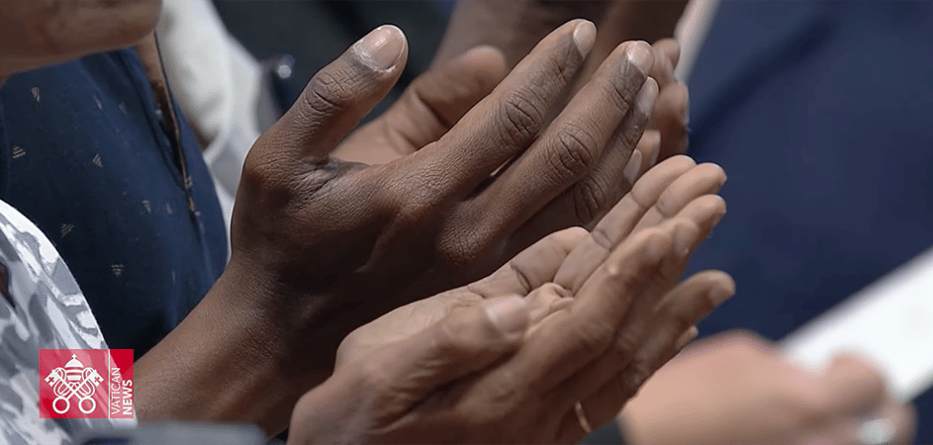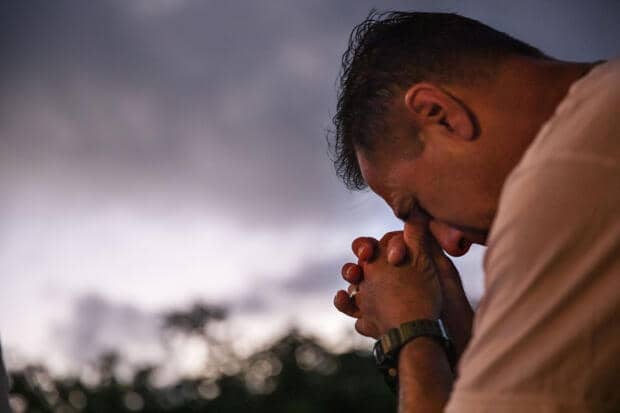Several times, Pope Francis has said things that have really shocked a number of North American Catholics. Yet if we put the comments in the context of Catholicism in other countries, often we’ll be shocked by the situation in those countries, not by the pope.
Pope Francis is Argentinian and, save a few years of study in Europe, he’s spent his entire life in the Latin American Church. In many respects, the Church in Latin America is in a very different position from the North American Church, both internally and with respect to regional cultural perspectives.
I spent three years studying in Rome in a college where the majority of the religious brothers were from Latin America, and I began to realize how different some of our cultural and ecclesial assumptions are.
I remember talking to a priest from Brazil, for instance, about how in the U.S. many religious communities do philosophy before novitiate. He was shocked because he was certain that most taking philosophy, for those communities, would be cheating the system to get a free education. In the U.S., I don’t think this is an issue, because there are easier ways to get a college degree than faking a religious vocation for four years.
Another difference is how in the U.S. and Canada we struggle to form people’s consciences so they don’t receive Communion if they’ve committed mortal sin, while in Latin America the opposite problem is true: People believe they need to go to confession each time they go to Communion, even if they’ve committed no mortal sins.
A recent example comes to mind where several American commentators I’d generally trust could not understand Pope Francis’ comment about priests denying baptism to unwed mothers. They wrote lines like, “I’ve never known a priest who would deny a child baptism just based on that.”
I believe them, as I have never met a priest like that in the U.S. either. Yet, speaking to those from Latin America, this seems to be an all-too-common practice in certain areas. Unfortunately, priests there take Canon 868, requiring “a founded hope that the infant will be brought up in the Catholic religion,” and make an assumption this can only happen in married couples.
I was also rightly scandalized by how they would describe certain places where parishes would list “prices” outside the church – something like, “Baptism $100, Confirmation $75, etc.”
I remember similar things when Pope Francis talks about how difficult it was to get an annulment. It is fairly easy in the US, but not always so in other parts of the world. Underfunded tribunals there often take a long time or charge tremendous amounts of money.
Even in the U.S., priests working Hispanic ministry will run into people who won’t seek annulments because they think annulments are just for the rich. This very well may be the case – or at least the perception – in their home country.
One final example: in Amoris Laetitia, Francis mentioned how some couples delay their marriage and cohabitate because they are waiting to save up enough money for marriage. I have not really run into this problem in North America, but again my friends from Latin America tell me it is a problem.
This comment was less controversial because his solution was pretty straightforward: just have a simple ceremony, rather than an elaborate party.
One of the things we have to accept with the Latin American pope is that when he talks about the situation of the Church worldwide, the church in Latin America will loom large. This isn’t necessarily inappropriate, as 41 percent of the world’s Catholics live in Latin America, while Europe – home of every other pope in the last 1000+ years – has 24 percent, and the U.S. and Canada have only 7 percent.
If we get an American pope, he would have an obvious tendency to emphasize the situation of the Church in the United States and we would see little reason to apologize for this. Likewise, we shouldn’t see any problem with a pope from Latin America emphasizing the difficulties of the Church there.
It should be even less surprising when Francis’ home comprises almost half of all Catholics in the world.
If we reduce what’s different about Latin American Catholicism to language, devotion to Our Lady of Guadalupe, and religious practice that’s vivacious rather than solemn, we have missed a lot. They have certain positive aspects, like their unwavering adherence to the pope and Catholicism being a majority religion, but they also have challenges that are completely foreign to us in North America.
Let’s go through three differences causing the difficulties the pope speaks of, or the misunderstandings I see from Americans.
First, Latin American priests have it much harder in pastoral care (even if we might have it harder culturally). In the U.S., we are spoiled in a number of ways. Despite our priest shortages, the U.S. still has far more priests per million Catholics than Latin America. The U.S. has about two times as many priests as Brazil, but Brazil has about 2.5 times as many Catholics.
Imagine how overwhelmed priests would be in your home diocese if 4 out of 5 left tomorrow – that is Brazil’s situation.
Second, our culture was founded as a Protestant culture, while theirs is a mix of indigenous and Catholic at its root. A Protestant culture makes us hard workers but tends to emphasize a black-and-white vision of morality. Catholic culture tends to view morality on a gradation.
While a Protestant culture goes around condemning the immoral, a Catholic culture goes around trying to find a starting point with them to move towards morality. Protestantism separated a choice for Jesus from a moral choice, however Catholicism keeps these together, and a Catholic culture realizes the need to generally put the choice for Jesus first so people will be motivated to morals.
Third, we are the economic, political, and military leaders of the world, but that doesn’t automatically translate into being the spiritual leaders. I’ve seen a great spirit and devotion in people from Latin America and Italy that’s quite different from American spirituality.
I don’t think Latin American Catholicism is better or worse than North American Catholicism overall, but each culture has different strengths and different challenges.
I’m not going to argue that every single line Pope Francis utters off-the-cuff is the most prudent thing to say, as even he corrects himself later on when he overstates something. For example, recently he said that most marriages are invalid because the couple didn’t understand permanence, then he corrected it to many marriages.
Instead, what I ask of American Catholics is to attempt to see a statement from the perspective of the Latin American Church before passing judgment on what Pope Francis said. It behooves us as good Catholics to attempt to understand what the pope says, and not just assume the most negative interpretation of his words immediately.
Father Matthew P. Schneider, LC is a priest with the Legionaries of Christ ordained in 2013. He has over 50,000 followers between Twitter and Instagram. He lives in the Washington, D.C., metro area, where he studies and helps out with a few ministries. Originally from Calgary, Alberta, Canada, Schneider has worked throughout North America.


















